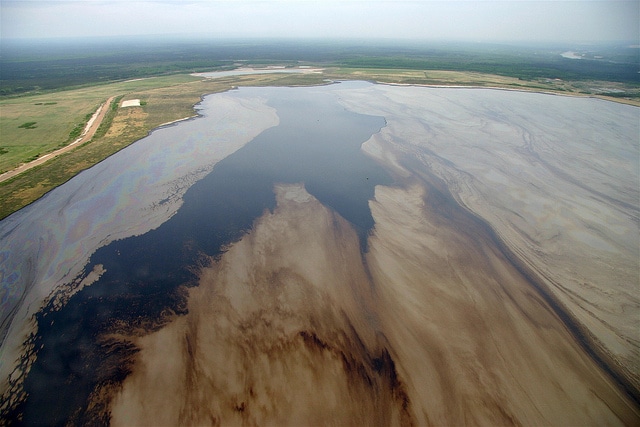The Alberta government has shuttered its arm’s length environmental monitoring agency after a report concluded the program was a “failed experiment.”
Minister of Environment Shannon Phillips announced Tuesday the Alberta Environmental Monitoring, Evaluation and Reporting Agency (AEMERA) would be disbanded and environmental monitoring will return back to the government.
“It ensures government is directly accountable for environmental monitoring and that issues or gaps in monitoring are responded to immediately,” Phillips said at a press conference.
Phillip’s ministry commissioned a report that described the Alberta Environmental Monitoring, Evaluation and Reporting Agency as overly expensive, poorly co-ordinated and plagued by bureaucratic bickering.
“It is hard to escape the conclusion that AEMERA is a failed experiment in outsourcing a core responsibility of government to an arm’s-length body,” wrote report author Paul Boothe, director of the Lawrence National Centre for Policy and Management at Western University’s Ivey School of Business.
The agency was created in 2012 as a reaction to criticism about Alberta’s lack of environmental monitoring in the oilsands — but ultimately, the program failed to attain the “world-class” monitoring standard the government touted.
“Critical dollars were being diverted away from monitoring and science to overhead and administrative duplication,” Phillips said.
Under AEMERA, provincial scientists were meant to collaborate with Environment Canada to monitor the oil industry’s impacts on air, land and water. It was funded by $50 million from industry and another $28 million from the province.
The new structure will have two panels: a science advisory panel and a traditional ecological knowledge panel. For the first time, environmental monitoring results will be made available to the public.
“This openness and transparency is essential to allow Albertans to rationalize the minister’s decisions and ensure they are making decisions in the best interest of Albertans,” says Andy Read, an analyst with the Pembina Institute, a sustainable energy think tank.
Risk of Political Interference Remains
Experts warn legislative changes are needed to avoid political interference.
“It’s not enough just to fold this and roll it into environment and parks,” says Martin Olszynski, an environmental law expert at the University of Calgary. “If they’re committed, the next piece has to be legislative change with provisions around making monitoring mandatory.”
Olszynski says he would like to see enforceable deadlines for the delivery of data through legislation.
“This kind of monitoring is costly, and it will always be costly,” says Olszynski. “It would be very easy to fold that division without a public bru haha.”
Even AEMERA, which amalgamated individual monitoring programs across the province and was meant to operate as an independent organization, was never full free of political influence, Read said.
“They were still reporting to and needed approval from the minister to release environmental information,” Read said.
Boothe’s report confirmed that: “A lack of clarity around the government’s expectations regarding AEMERA’s ‘arm’s-length’ nature contributed to the poor relations between partners.”
Three years after its creation, AEMERA had not expanded to become a province-wide environmental monitoring program and had failed to find a stabile funding structure.
There remain unanswered questions about the new monitoring system when it comes to the role of stakeholders within the province and the relationship with the federal government.
“It’s still somewhat of a gap,” Read said, pointing out the decision has implications for groups such as the Wood Buffalo Environmental Agency.
“You need to build trust with regional representatives across Alberta,” Read said. “That’s crucial in even identifying what monitoring needs are.”
Role of Federal Government Unclear
One of the report’s major criticisms of AEMERA revolved around the role of the federal government and the agency’s inability to accept Environment Canada as a partner. As of now there is no clear path on how the federal government will be involved in the new structure.
“This is a classic issue and tension in environmental law in Canada,” Olszynski said. “It’d be nice if everyone could accept that it is shared jurisdiction.”
The announced changes maintain AEMERA’s funding model, which weren’t adequate for the province-wide mandate of the agency.
Read says the polluter-pay model has to be implemented province-wide to ensure adequate funding to deliver on monitoring the entire province.
“We definitely will be paying attention to how they establish themselves to collect funding,” Read said.
The Alberta budget will be announced on April 14 and the government expects the new monitoring system to be operational by this summer.
Photo: David Dodge via Flickr
Subscribe to our newsletter
Stay up to date with DeSmog news and alerts







